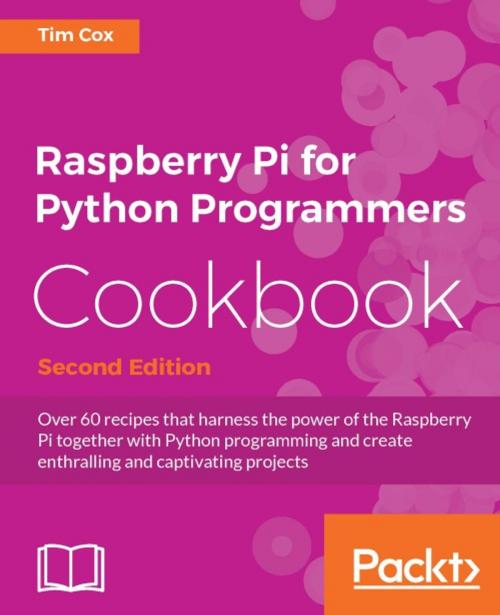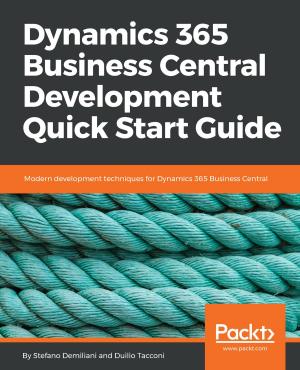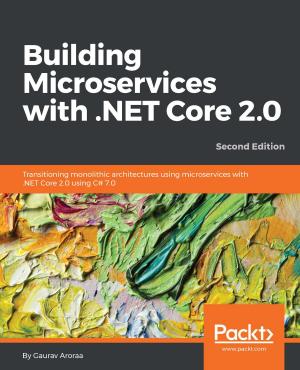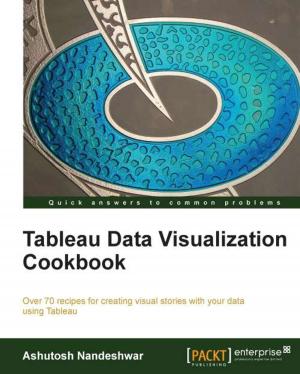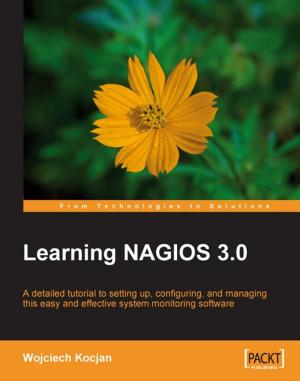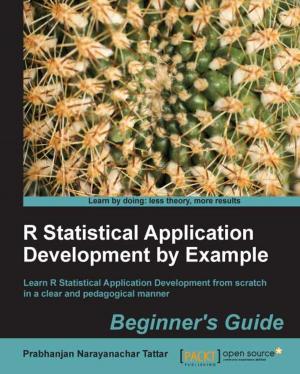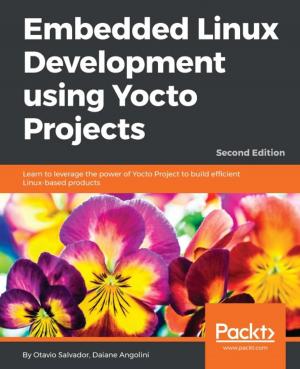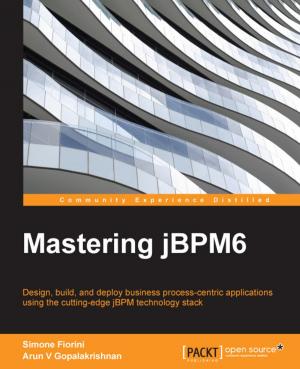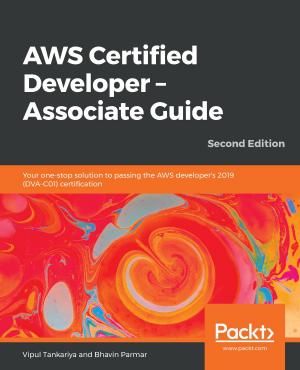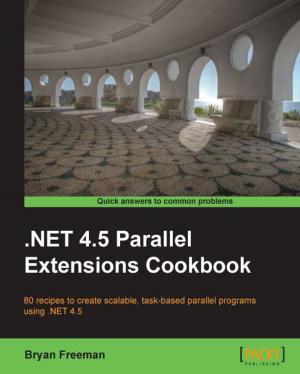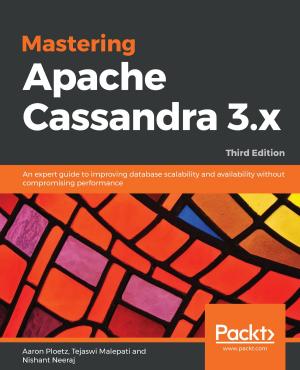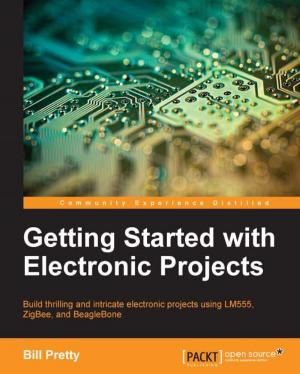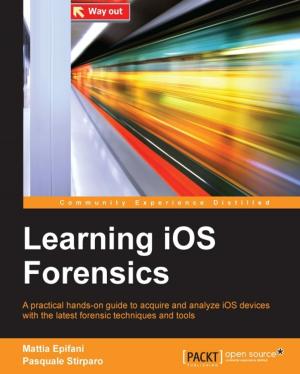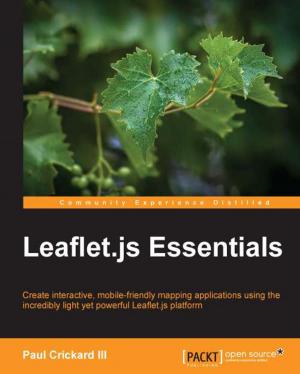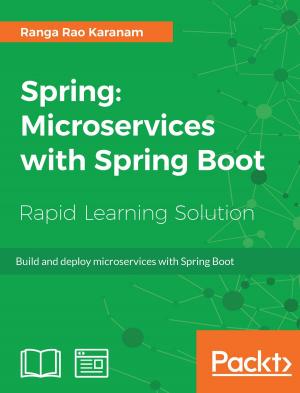Raspberry Pi for Python Programmers Cookbook - Second Edition
Nonfiction, Computers, Computer Hardware, Peripherals & Accessories, Input-Output Equipment, Programming, Programming Languages| Author: | Tim Cox | ISBN: | 9781785283901 |
| Publisher: | Packt Publishing | Publication: | October 7, 2016 |
| Imprint: | Packt Publishing | Language: | English |
| Author: | Tim Cox |
| ISBN: | 9781785283901 |
| Publisher: | Packt Publishing |
| Publication: | October 7, 2016 |
| Imprint: | Packt Publishing |
| Language: | English |
Over 60 recipes that harness the power of the Raspberry Pi together with Python programming and create enthralling and captivating projects
About This Book
- Install your first operating system, share files over the network, and run programs remotely
- Construct robots and interface with your own circuits and purpose built add-ons, as well as adapt off-the-shelf household devices using this pragmatic guide
- Packed with clear, step-by-step recipes to walk you through the capabilities of Raspberry Pi
Who This Book Is For
Readers are expected to be familiar with programming concepts and Python (where possible Python 3 is used), although beginners should manage with the help of a good Python reference book and background reading. No prior knowledge of the Raspberry Pi or electronics is required; however, for the hardware sections you will need some basic electronic components/household tools to build some of the projects.
What You Will Learn
- Get the Raspberry Pi set up and running for the first time
- Remotely connect to the Raspberry Pi and use your PC/laptop instead of a separate screen/keyboard
- Get to grips with text, files and creating quick menus using Python
- Develop desktop applications; handle images and process files with ease
- Make use of graphics and user control to develop your own exciting games
- Use the Raspberry Pi's powerful GPU to create 3D worlds
- Take control of the real world and interface with physical hardware, combining hardware and software for your own needs
- Measure and control processes, respond to real events and monitor through the Internet
- Learn about the Raspberry Pi hardware inputs/outputs, starting with the basics and beyond
- Expand the capabilities of the Raspberry Pi with hardware expansion / add-on modules (use analogue inputs, drive servos and motors, and use SPI/I2C)
- Create your own Pi-Rover or Pi-Hexpod driven by the Raspberry Pi
- Make use of existing hardware by modifying and interfacing with it using the Raspberry Pi
In Detail
Raspberry Pi cookbook for Python Programmers is a practical guide for getting the most out of this little computer. This book begins by guiding you through setting up the Raspberry Pi, performing tasks using Python 3 and introduces the first steps to interface with electronics. As you work through each chapter you will build up your skills and knowledge and apply them as you progress throughout the book, delving further and further into the unique abilities and features of the Raspberry Pi.
Later, you will learn how to automate tasks by accessing files, build applications using the popular Tkinter library and create games by controlling graphics on screen. You will harness the power of the built-in graphics processor by using Pi3D to generate your own high quality 3D graphics and environments. Connect directly to the Raspberry Pi's hardware pins to control electronics from switching on LEDs and responding to push buttons right through to driving motors and servos. Learn how to monitor sensors to gather real life data and to use it to control other devices, and view the results over the Internet. Apply what you have learnt by creating your own Pi-Rover or Pi-Hexipod robots. Finally, we will explore using many of the purpose built add-ons available for the Raspberry Pi, as well as interfacing with common household devices in new ways.
Style and approach
Written in a cookbook style, the book contains a series of recipes on various topics, ranging from simple to complex. It is an easy-to-follow and step-by-step guide with examples of various feature integration suitable for any search application.
Over 60 recipes that harness the power of the Raspberry Pi together with Python programming and create enthralling and captivating projects
About This Book
- Install your first operating system, share files over the network, and run programs remotely
- Construct robots and interface with your own circuits and purpose built add-ons, as well as adapt off-the-shelf household devices using this pragmatic guide
- Packed with clear, step-by-step recipes to walk you through the capabilities of Raspberry Pi
Who This Book Is For
Readers are expected to be familiar with programming concepts and Python (where possible Python 3 is used), although beginners should manage with the help of a good Python reference book and background reading. No prior knowledge of the Raspberry Pi or electronics is required; however, for the hardware sections you will need some basic electronic components/household tools to build some of the projects.
What You Will Learn
- Get the Raspberry Pi set up and running for the first time
- Remotely connect to the Raspberry Pi and use your PC/laptop instead of a separate screen/keyboard
- Get to grips with text, files and creating quick menus using Python
- Develop desktop applications; handle images and process files with ease
- Make use of graphics and user control to develop your own exciting games
- Use the Raspberry Pi's powerful GPU to create 3D worlds
- Take control of the real world and interface with physical hardware, combining hardware and software for your own needs
- Measure and control processes, respond to real events and monitor through the Internet
- Learn about the Raspberry Pi hardware inputs/outputs, starting with the basics and beyond
- Expand the capabilities of the Raspberry Pi with hardware expansion / add-on modules (use analogue inputs, drive servos and motors, and use SPI/I2C)
- Create your own Pi-Rover or Pi-Hexpod driven by the Raspberry Pi
- Make use of existing hardware by modifying and interfacing with it using the Raspberry Pi
In Detail
Raspberry Pi cookbook for Python Programmers is a practical guide for getting the most out of this little computer. This book begins by guiding you through setting up the Raspberry Pi, performing tasks using Python 3 and introduces the first steps to interface with electronics. As you work through each chapter you will build up your skills and knowledge and apply them as you progress throughout the book, delving further and further into the unique abilities and features of the Raspberry Pi.
Later, you will learn how to automate tasks by accessing files, build applications using the popular Tkinter library and create games by controlling graphics on screen. You will harness the power of the built-in graphics processor by using Pi3D to generate your own high quality 3D graphics and environments. Connect directly to the Raspberry Pi's hardware pins to control electronics from switching on LEDs and responding to push buttons right through to driving motors and servos. Learn how to monitor sensors to gather real life data and to use it to control other devices, and view the results over the Internet. Apply what you have learnt by creating your own Pi-Rover or Pi-Hexipod robots. Finally, we will explore using many of the purpose built add-ons available for the Raspberry Pi, as well as interfacing with common household devices in new ways.
Style and approach
Written in a cookbook style, the book contains a series of recipes on various topics, ranging from simple to complex. It is an easy-to-follow and step-by-step guide with examples of various feature integration suitable for any search application.
